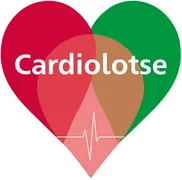The German healthcare system faces numerous challenges: increasing life expectancy, a growing shortage of skilled professionals, and a simultaneous under-, over-, and misallocation of care. At the same time, complex structures and bureaucratic obstacles hinder access to essential services, making it difficult for many patients to navigate the fragmented system. In this context, innovative approaches to improve patient care and coordination are gaining importance. One such approach under discussion is the use of health navigators to assist patients in managing their way through the system. A project aiming to integrate navigators into everyday care is the so-called “Cardiolotse” (Cardio-Navigator).
Under the leadership of Prof. Dr. Leonie Sundmacher, head of the Associate Professorship of Health Economics, the research team—including academic staff Dr. Wiebke Schüttig, Marie Coors, and Saskia Kropp—was tasked with evaluating both the effectiveness and the health economic impact of the “Cardiolotse”. The results of the effectiveness study were published in the journal BMC Medicine under the title “Reducing rehospitalization in cardiac patients: a randomized, controlled trial of a cardiac care management program (‘Cardiolotse’) in Germany”. The findings of the health economic analysis were published in the European Journal of Health Economics under the title “Cost-effectiveness and cost-utility analysis of a nurse-led, transitional care model to improve care coordination for patients with cardiovascular diseases: results from the ‘Cardiolotse’ study”.
The Cardiolotse project was funded by the Innovation Fund of the Federal Joint Committee and carried out in cooperation with AOK Nordost and Vivantes – Netzwerk für Gesundheit GmbH. This new care approach aims to improve post-hospital follow-up care and was tested using patients with cardiovascular diseases as an example. The Cardiolotse program was implemented as a randomized controlled trial. The primary data collected in the study, along with linked routine data from AOK Nordost, served as the basis for analysis.
The transition from inpatient to outpatient care was identified as a critical phase in the treatment of patients with cardiovascular diseases. To bridge this gap in care, affected individuals had access to the specially trained Cardiolotse, who acted as a caregiver and personal contact. The main tasks of the Cardiolotse included acting as a cross-sectoral and interdisciplinary link, informing patients about their condition, strengthening their engagement in their own care, and connecting them with appropriate support services.
“The deployment of the Cardiolotse led to a lower rehospitalization rate, shortened hospital stays, and improved patient compliance,” summarizes Dr. Wiebke Schüttig, deputy head of the department and academic staff member, regarding the effectiveness analysis. Subgroup analyses further showed that the positive effects of the Cardiolotse were particularly evident in patients over 70 years of age and those with limited German language skills, according to Schüttig.
Marie Coors, also an academic staff member, added insights from the health economic perspective in the second study: “Both the reduction in rehospitalization rates and the shorter hospital stays are reflected in lower service costs, particularly in the inpatient sector. As a result, the Cardiolotse can be considered cost-effective from the perspective of statutory health insurers when compared to standard care.”
While the Innovation Committee remains cautious about integrating health navigators into standard care, Prof. Leonie Sundmacher sets clear conditions: “The implementation of a navigator-based care model, accessible to all insured persons regardless of their insurance provider, should proceed once the key questions regarding the target patient group, funding, and labor market integration have been addressed—and once there is clear evidence of added benefit.”
What potential lies in an evidence-based and structured introduction of the navigator model, and which other healthcare policy measures should be part of future reforms, were discussed in detail by Prof. Leonie Sundmacher in an interview with Monitor Versorgungsforschung.
To the homepage of the Associate Professorship of Health Economics (CHEC)
Link to the study in BMC Medicine
Link to the study in European Journal of Health Economics
Contact:
Prof. Dr. Leonie Sundmacher
Associate Professorship of Health Economics (CHEC)
Georg-Brauchle Ring 60/62
80992 München
phone: 089 289 24464
e-Mail: leonie.sundmacher(at)tum.de
Marie Coors
Associate Professorship of Health Economics (CHEC)
Georg-Brauchle Ring 60/62
80992 München
e-Mail: marie.coors(at)tum.de
Text: Jasmin Schol / Marie Coors
Photos: Private


